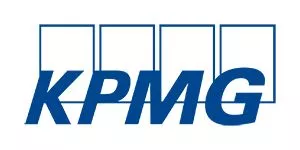- within Corporate/Commercial Law topic(s)
- within Immigration topic(s)
The KPMG Global Family Business Report 2025 offers valuable insights into how family businesses can ensure long-term success and resilience through strategic growth, strong governance, and values-driven leadership. As family enterprises evolve in response to generational shifts, expanding sustainability demands, and a business environment increasingly shaped by Mergers and Acquisitions (M&A) as a growth strategy, the report highlights key trends and outlines a roadmap for enduring success.
Defining Success in the Modern Era
Success in family businesses today goes beyond continuity across generations. While preserving family legacy remains important, modern success also encompasses financial performance, sound governance, strategic planning, and positive social impact. In this context, linking growth to a deeper purpose is not just desirable—it is essential. Businesses are increasingly recognising that values and vision must align with performance and profit.
Key Success Factors
1. Growth and Value Creation
Growth is a cornerstone of long-term sustainability. To remain competitive and preserve their legacy, family businesses must create value by:
- Expanding and diversifying revenue streams
- Strengthening customer loyalty
- Innovating
- Improving financial systems and processes
- Attracting and retaining talent
- Building strategic partnerships
- Developing clear succession plans.
These elements enhance resilience and adaptability.
2. Governance
Strong corporate governance is the foundation of successful family businesses. This includes:
- Establishing structured boards of directors
- Defining roles and ensuring transparent procedures
- Promoting diversity in board composition (gender, experience, external members).
Good governance supports not only daily operations but also long-term strategy, resilience, and growth.
Access to Growth Capital and M&A as a Strategic Pillar
Strategic investment access has become a priority. Many family businesses leverage private equity and M&A to:
- Scale and expand operations
- Enter new markets
- Foster innovation
- Drive digital transformation.
The report reveals that over 60% of M&A deals involve family businesses acquiring other family-owned enterprises. Despite concerns about loss of control or cultural mismatch, when deals align with the family's values and goals, they lead to stronger outcomes.
The rise of Family Offices now plays a crucial role by offering specialized management of family investments. Their purpose is to plan and monitor the trajectory of family wealth, ensuring alignment with core family values and the preservation and growth of family legacy across generations.
Sustainability as a Driving Force
Integrating ESG (Environmental, Social, Governance) principles has become a strategic necessity. By adopting ESG practices, family businesses can:
- Reduce costs
- Increase employee engagement
- Improve relationships with customers, suppliers, and investors
- Strengthen corporate reputation.
Due to their deep roots in local communities, family businesses are uniquely positioned to embed sustainability at the heart of their strategy.
Challenges and Opportunities
A New Perspective on Corporate Purpose
Younger generations (Millennials, Gen Z) are redefining leadership by focusing on societal and environmental impact. Their strategic approach incorporates Corporate Social Responsibility (CSR), reshaping the definition of success.
Digital Transformation
Technological innovation is crucial, yet often faces:
- Cultural resistance
- Lack of expertise
- Financial constraints.
Collaboration between older and younger generations is vital to balance tradition and innovation.
Succession Planning
Leadership transition is a critical issue, especially with the retirement of the Baby Boomer generation. Successful succession requires:
- Honest and transparent communication
- Training and mentoring programs
- A documented succession plan.
This ensures smooth leadership transitions without conflict or family disputes.
The Role of Boards and Expert Advisors
A dynamic, diverse board with external experts and younger members enhances flexibility and strategic foresight. Additionally, collaboration with professionals in legal, financial, and digital fields brings objectivity and specialised knowledge.
A Path to Enduring Success
Family businesses that embrace change—through innovation, governance, ESG, and strategic investments—don't just preserve their heritage. They transform it.
To thrive in the future, they must:
- Evolve governance structures
- Invest in sustainability
- Approach acquisitions responsibly with strategic planning
- Proactively plan for leadership succession
- Embrace digital transformation
- Create Family Offices as needed to professionally manage family investments and strategic decisions.
The combination of traditional and modern values, innovation, and foresight is the key to shaping a sustainable and competitive future.
The content of this article is intended to provide a general guide to the subject matter. Specialist advice should be sought about your specific circumstances.



